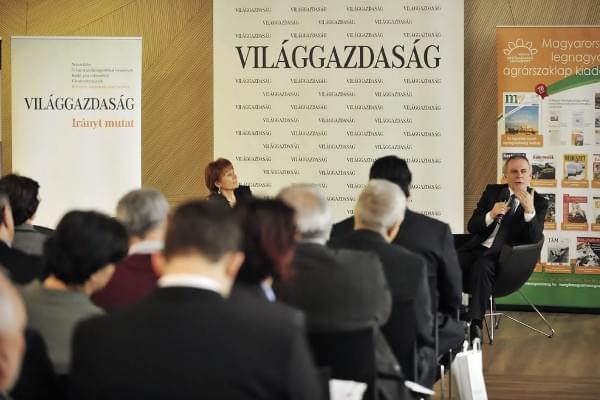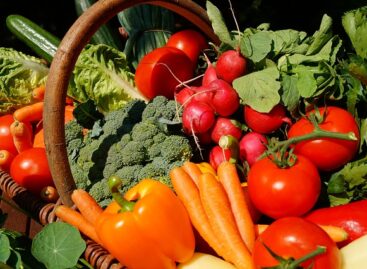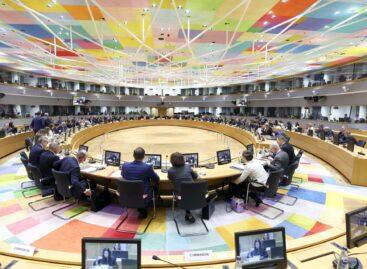The future of agriculture
Hungarian daily Világgazdaság organised a conference titled ‘Agriculture of the future – the future of agriculture’ on the most important issues in Hungarian agriculture.
György Czerván, secretary of state at the Ministry of Agriculture was the first speaker. He revealed that Hungarian agriculture performed very well in 2013 and growth in the first three quarters of 2014 neared 8 percent. Investment in the sector has been growing since 2010. However, this year’s Russian import ban was detrimental to our agri-food export: in January-November 2014 it contracted 2.8 percent to EUR 7.3 billion. As for EU funding, the CAP budget decreased by 11 percent for the 2014-2020 period but Hungary would get 35 percent more money, EUR 12.3 billion from it. Mr Czerván told that in 2015 one of their main tasks is launching the ‘More jobs in agriculture!’ programme and using subsidies efficiently, plus reaching the EUR 10-billion threshold in our annual export, with semi-finished and finished product share growing to 80 percent. Deputy state secretary József Viski expressed his opinion that Hungarian agriculture’s competitiveness can only be preserved by keeping present and creating new rural jobs. This can’t be done without innovation and continuous education. He stressed the importance of the ‘Young Farmer’ programme. Balázs Pintér, director of the Agricultural and Rural Development Agency (MVH) spoke about the increase in subsidies: so far HUF 46.6 billion was approved for young farmers and last year HUF 260 billion was made available from the European Agricultural Fund for Rural Development. György Pulai, head of department at the Central Bank of Hungary (MNB) made it clear that the objective of the Funding for Growth Scheme (NHP) is to restore normal operation in lending to SMEs. In NHP’s second stage HUF 601 billion was used until the end of January 2015, from which agriculture businesses applied for HUF 152 billion. After the coffee break ex-agriculture ministers Frigyes Nagy and József Gráf were discussing the opportunities of Hungarian agriculture. Mr Nagy doesn’t agree with cutting the proportion of large agriculture businesses to 20 percent. Mr Gráf concurred with him and added that Hungarian farmers need to start working together, because only cooperatives can compete with international players. Agricultural entrepreneur György Raskó gave a presentation on the economic and social effects of the new land law. The new law’s goal is to make corporations and cooperatives less dominant in agricultural production and to turn family farms into the driving force of the sector. He told that the level of employment would decrease in agriculture. The size of the cattle stock will reduce and the currently stagnating pig stock is unlikely to grow. Corporations will lose HUF 200-300 billion worth of their assets due to the new law limiting the size of land they can own. At the end of the conference president of Mastergood group László Bárány, Agropoint managing director Gyula Gáspár, ESRI Hungary managing director Attila Oláh and the president of the Grain Producer’s Association – Hungary (GOSZ) József Vancsura shared their views on what can make Hungarian agriculture competitive at international level. They mentioned professional knowledge, the adoption of new technologies and SMEs joining forces
Related news
Adaptation and competitiveness are key for the horticultural sector
🎧 Hallgasd a cikket: Lejátszás Szünet Folytatás Leállítás Nyelv: Auto…
Read more >The guarantee of support for farmers is the preservation of an independent, autonomous agricultural policy
🎧 Hallgasd a cikket: Lejátszás Szünet Folytatás Leállítás Nyelv: Auto…
Read more >Related news
Half of employees do not support salary transparency
🎧 Hallgasd a cikket: Lejátszás Szünet Folytatás Leállítás Nyelv: Auto…
Read more >









